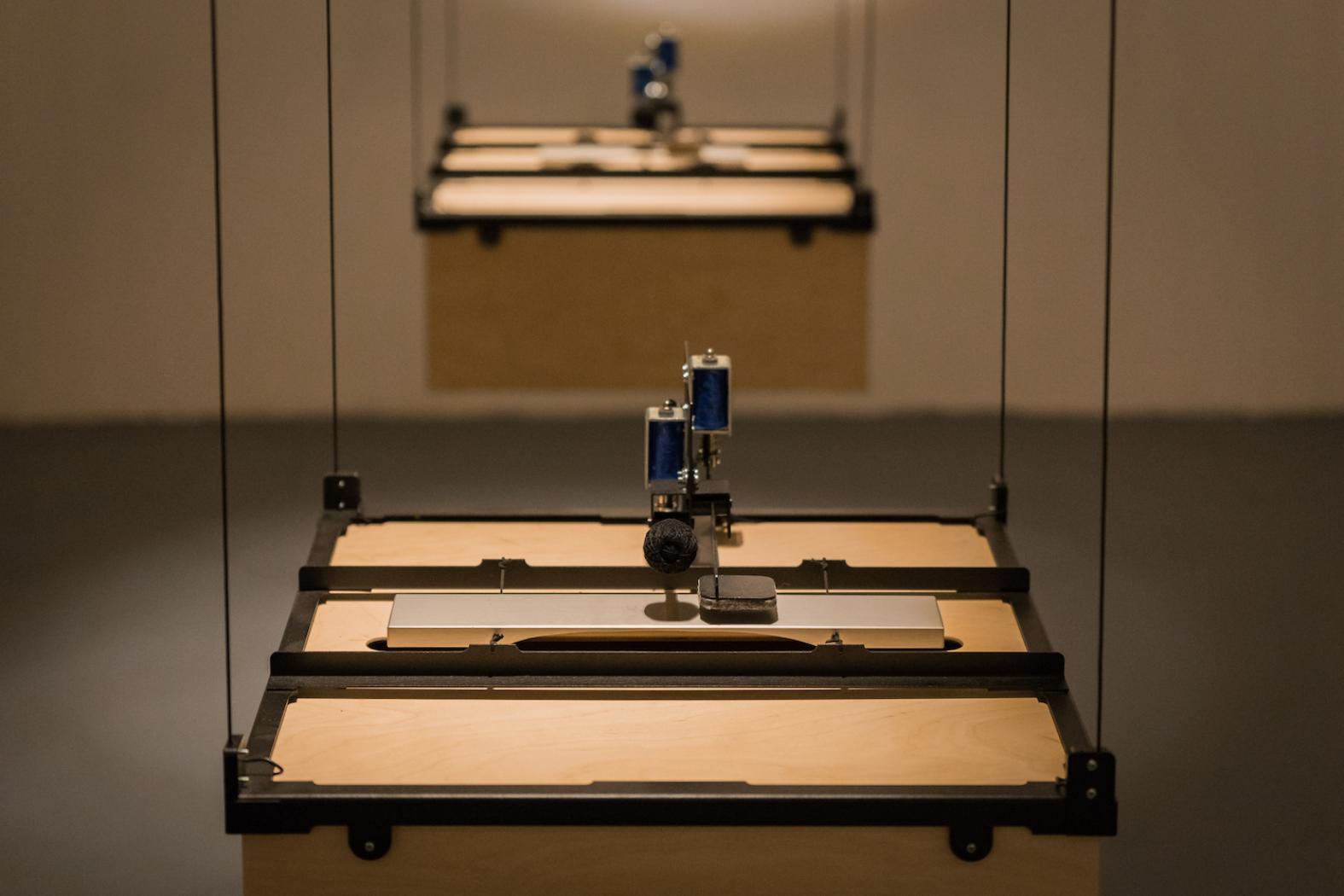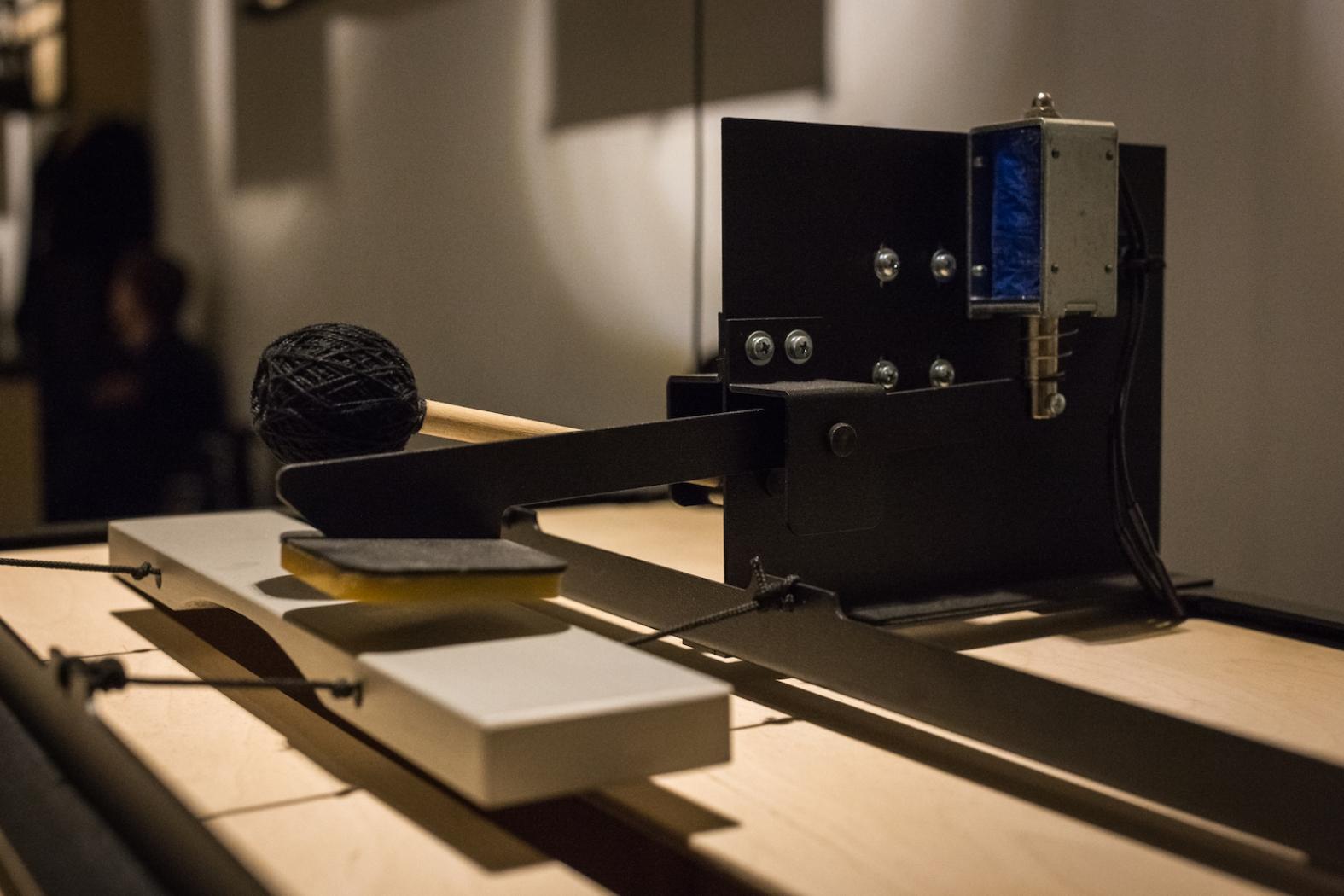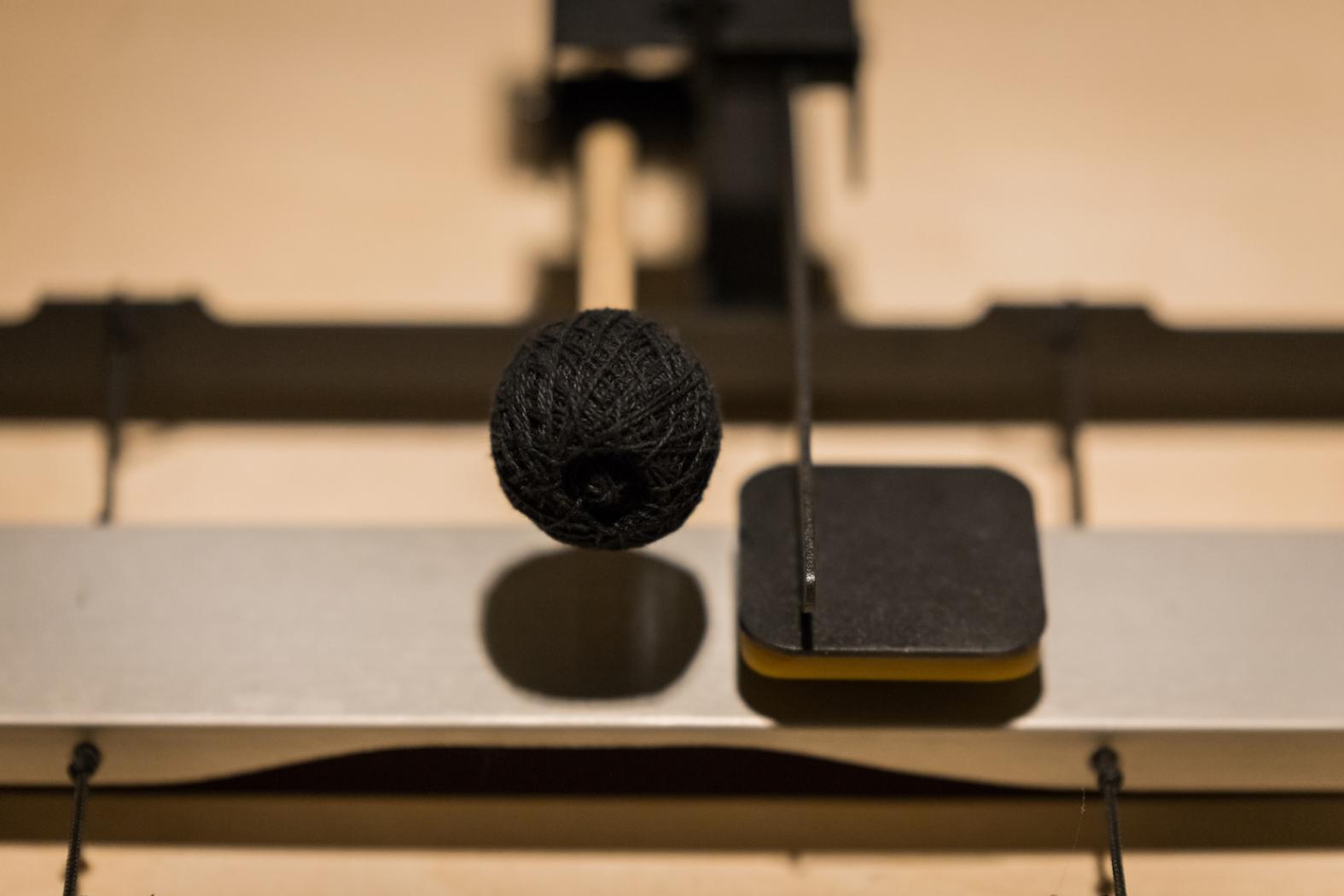That future might not be far away, though. A team of researchers at Georgia Tech recently created a marimba-playing robot that writes and plays its own compositions using deep learning. And now a Lithuanian artist named Andrius Sarapovas has created an immense robotic sculpture that turns 4G data into music.
The Kinetic Generative Music Installation consists of 77 individual “players” that use a metal bar, sound activator, dampener, resonator, and mechatronics, which combine electronics and mechanical engineering.
Each component is either hanging from the ceiling or attached to the wall. With access to mobile company Tele2’s Lithuanian 4G network, the installation uses a custom algorithm to translate the network’s statistical data into sounds.
One second of data usage creates one second of music, while the number of sessions connected to Tele2’s network determine the music’s rhythm, velocity, volume, and lighting within the installation. Pitch is decided by the amount of data downloaded.
“The installation can also be viewed as a single large musical instrument that sets its own routine,” Sarapovas told Creators.
Through his installation, the artist hopes to explore the area where structure and chaos meet in a way that’s perceivable to people.
“What’s interesting is that not all of the data used in the project is generated directly as a result of human actions,” Sarapovas said. “Some of it is determined by long-term choices to use one device or another, by the apps they’ve installed, or by the settings they use.”
We live increasingly connected lives and, although many of us are dependent on data and algorithms, we rarely perceive just how reliant we are.
“Our smart devices are always on, updating their apps, refreshing their news feeds, and synchronizing their data,” Šarapovas said. “This means that our kinetic installation’s algorithm is also being activated by other algorithms, which can be affected by yet other algorithms, and so on.”
Creating the installation was a collaborative and generative process in its own right, including a team of over 70 people, including professional programmers, engineers, and electromechanics.









